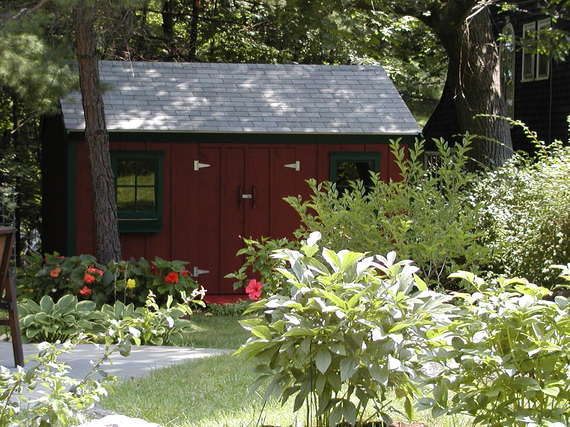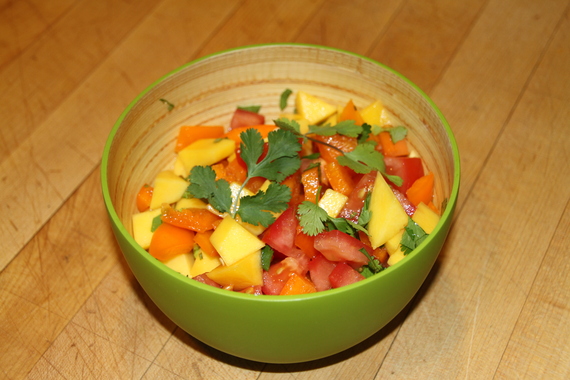I was mulching piles of leaves in my garden last autumn when my neighbor joined me to chat about a recent episode of NPR's Planet Money series on the global nature of making and selling a t-shirt.
We are lucky our homes are in a wooded area. I often see wild turkeys cross our lane, the occasional coyote wanders through our yard, and there is a pair of red-tailed hawks who regularly fledge a chick or two in a nest atop a large white pine that I can see from our kitchen. It's what I call pastoral-urban, and it is remarkable as we live not five miles from downtown Boston, a metropolis of many millions.
Our conversation shifts to concerns about a local developer who wants to subdivide what was a single family lot into four homes. We are worried about what this would do to the nature of our neighborhood. It is a reasonable concern that I am guessing all families wherever they live tussle with -- how to protect and conserve what we like and what we value within the spaces where we reside.
Watching a nuthatch climb a nearby maple, my neighbor and I ponder how it is possible that we can live the lifestyle that we do and still have so much nature around us? We agree that it is because we consume over the horizon. That's to say, most of what our families purchase comes not from our neighborhood but from places that we cannot see. Our food, clothing, and even the new extension to the house for my mother-in-law can all be sourced elsewhere.
Unfortunately, too often we do not (or choose not to) have a clue about what "elsewhere" looks like, and we seem little concerned about how our purchasing choices might influence the families of far-away communities. My neighbor and I worry about the housing lot just down the road, but we can be terribly oblivious to our impact on all the places that feed, fuel, clothe, and shelter us.
I have a passion for mangoes, olives, and these little sweet bananas that I learned to love when I lived in the Congo, but none grow in my neighborhood. As I make a spicy mango salsa to accompany the corn tortillas and refried beans that we will eat for dinner, I too seldom consider if my purchases are threatening some other families' neighborhood in ways not so different than how the developer of our local lot is threatening mine.
In an increasingly flat world we all, to some extent, are consuming over the horizon. Yet our understanding of what that means to the planet and our moral compasses have yet to catch up with our ability to buy lentils from India, chocolate from Ghana, cell phones from China, 2x4s from Canada, and wine from Chile.
Knowing where we buy stuff from is a good thing. But that does not tell us what our purchasing choices are doing to other families' communities.
Certifications schemes like Forest Stewardship Council, Wildlife Friendly, Organic, and Shade Grown are all a huge incentive for commodity producers to limit their environmental and social impacts and to be held accountable for their claims.
But we need to go further. With over 80 percent of the planet's land surface altered to meet the needs of humans, we need commodity providers and consumers to pay forward to the next generation. In so doing, we may ensure that when we consume over the horizon our decisions are understood and the adverse impacts of our consumption avoided or compensated.
By consciously situating ourselves in a larger, interconnected global community, where most trade is certified earth-friendly, we may begin to make choices about how we build, where we shop, and what we eat a little more carefully. Oh, and those sweet bananas you love? They might just taste just a little sweeter.



